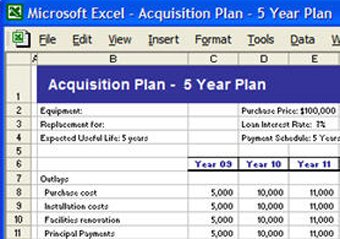On July 1, 2013, the FASB issued three proposals designed to reduce the complexity of certain accounting requirements for private companies. While that is certainly the intent, some unintended consequences may result as discussed below.
Audit, Compliance and Risk Blog
FASB Proposes Selected “Breaks” for Private Companies from U.S. GAAP
Posted by Ron Pippin on Mon, Jul 08, 2013
Tags: Business & Legal, SEC, Accounting & Tax, Accountants, US GAAP, GAAP
FASB Receives Report Card on Business Combination Accounting Rule
Posted by Ron Pippin on Thu, Jun 27, 2013
On May 22, 2013, the Financial Accounting Foundation (FAF) issued a post-implementation review (PIR) report on the accounting rule that the Financial Accounting Standards Board (FASB) prescribes for business combination accounting—specifically, FASB Statement No. 141 (Revised 2007), Business Combinations, now codified into FASB Codification Topic 805. In general, the report found that Statement 141(R) improved rules for the purchase method of accounting for business combinations but that problems remain, particularly in relation to fair value measurements. The PIR report also acknowledges unexpected compliance costs for companies that have applied the requirements in Statement 141(R).
Tags: Business & Legal, Accounting & Tax, Accountants, IFRS, Decision on IFRS
As mentioned in my September 2012 blog article, “Possible New Lease Accounting Rule—An Update,” a new proposal for lease accounting was likely to “hit the streets” sometime in 2013. Sure enough, a new proposal was issued on May 16, 2013. This proposal was issued jointly by the U.S. accounting standard-setter, the Financial Accounting Standards Board (FASB), and the International Accounting Standards Board (IASB), which issues accounting standards that are used by many companies in countries outside the United States. The two boards are striving to conform their accounting principles and this lease project is one example of that effort.
Tags: SEC, Accounting & Tax, Lease Accounting, Accountants
PCAOB Becomes Latest Regulator to Encourage Self-Policing
Posted by Jon Elliott on Tue, May 21, 2013
The latest regulator to establish a formal policy offering companies incentives to self-police is the Public Company Accounting Oversight Board (PCAOB), which regulates the accountants that audit the books for public companies and broker-dealers and help prepare their periodic reports. On April 24, PCAOB issued its “Policy Statement on Extraordinary Cooperation in Connection with Board Investigations.” This Policy Statement formalizes guidance to auditors, explaining how PCAOB’s inspection and enforcement personnel view regulated entities’ willingness to go beyond mere compliance, by taking steps such as:
Tags: Business & Legal, SEC, Accounting & Tax, Accountants
The FASB Turns 40—A Look-Back over Four Decades of Rulemaking
Posted by Ron Pippin on Thu, May 16, 2013
The accounting standard-setter for companies in the United States, the Financial Accounting Standards Board (FASB) is celebrating its 40th anniversary this year—and for all 40 years of the FASB’s existence, I have been practicing as a certified public accountant (CPA), both in public and industry accounting. I currently author this blog and work on a consulting basis with companies to help them understand the accounting rules as well as the way in which they are developed and issued by the FASB and other standard-setters. From this perspective, I will provide a mix of historical facts and some of my own personal views on the development of U.S. accounting rules.
Tags: Corporate Governance, Business & Legal, SEC, Accounting & Tax, Audit Standards, Accountants, AICPA
Accounting Guidance for Not-for-Profit Entities Is Changing
Posted by Ron Pippin on Fri, May 03, 2013
The Financial Accounting Standards Board (FASB) has recently clarified certain guidance relating to not-for-profit (NFP) entities. Specifically, it has issued Accounting Standards Update (ASU) No. 2012-05, Statement of Cash Flows (Topic 230), Not-for-Profit Entities: Classification of the Sale Proceeds of Donated Financial Assets in the Statement of Cash Flows, and ASU No. 2013-06, Not-for-Profit Entities (Topic 958), Services Received from Personnel of an Affiliate. The latter ASU was issued on April 19, 2013. Separately, the American Institute of Certified Public Accountants (AICPA) in March 2013 issued new guidance in the form of an updated Audit & Accounting Guide (AAG), Not-for-Profit Entities.
Tags: Business & Legal, SEC, Accounting & Tax, Lease Accounting, Audit Standards, Accountants, GAAS, GAAP
Included in the “Dodd-Frank Wall Street Reform and Consumer Protection Act” (Dodd-Frank Act), which became law in the United States on July 21, 2010, was the requirement that U.S. public companies disclose their use of “conflict minerals”—and compliance efforts must begin now. Specifically, companies must determine whether any of their products have been manufactured with any tin, tantalum, tungsten, or gold (3TG).
Tags: Corporate Governance, Business & Legal, SEC, International, Accounting & Tax, Accountants
Until May 31, 2013, the U.S. accounting standard-setter, the Financial Accounting Standards Board (FASB), is seeking comments on its lengthy, 158-page proposed accounting standards update, Financial Instruments—Credit Losses (Subtopic 825-15), issued on December 20, 2012. The proposed guidance would change how companies determine when and how a credit loss should be recognized.
Tags: Business & Legal, SEC, Accounting & Tax, Accountants, GAAP, IFRS
This blog article discusses the formal post-implementation review (PIR) process for U.S. accounting standards used by companies, not-for-profit entities, and state and local governments.
Tags: Corporate Governance, Business & Legal, SEC, Accounting & Tax, Audit Standards, Accountants, US GAAP, GAAP
On February 20, 2013, the U.S. Financial Accounting Standards Board (FASB) and its international counterpart, the International Accounting Standards Board (IASB), completed their “substantive deliberations” on the joint project to issue a comprehensive new standard on accounting for revenue. The changes in this standard will affect almost all companies in one way or another. While minor “tweaks” might occur over the next few weeks, the major decisions have been reached.
Tags: Corporate Governance, Business & Legal, SEC, International, Accounting & Tax, Audit Standards, Accountants, GAAP, Decision on IFRS


.jpg)







